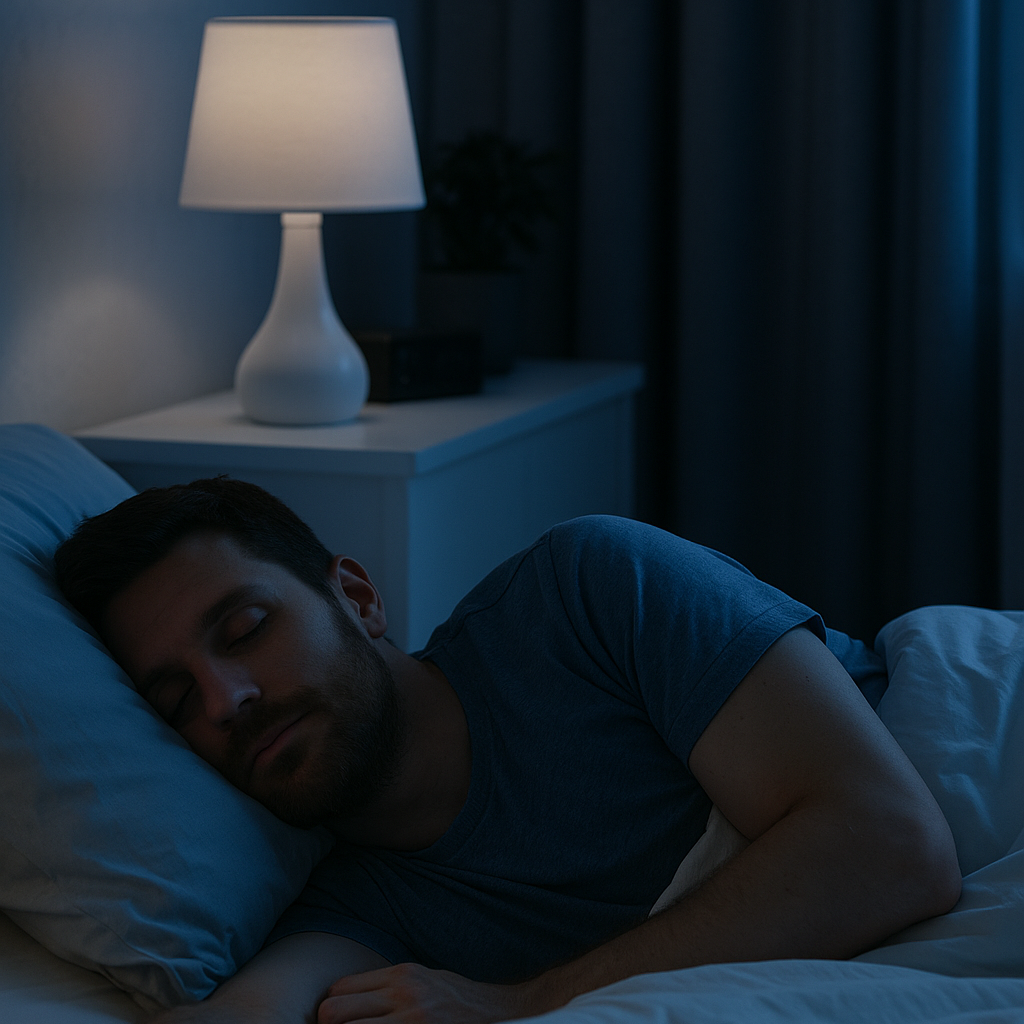Article: Sleep Smarter: Why Melatonin Isn’t the Whole Story
Sleep Smarter: Why Melatonin Isn’t the Whole Story
Walk into any chemist and you’ll find shelves of melatonin supplements promising a shortcut to better sleep. But here’s the truth: melatonin is only one part of the sleep process, and it’s not the part that keeps you asleep.
Melatonin: The Signal, Not the Sedative
Melatonin is a hormone produced by the pineal gland when your brain senses darkness. Its role is to act as a timekeeper, signalling to your body that it’s night and time to rest.
- It helps you fall asleep by lowering body temperature and easing the nervous system into a state of rest.
- Its half-life is short, around 30 minutes to 2 hours, which means it wears off quickly.
In other words, melatonin is more like the starter’s pistol at the beginning of a race. It tells your body to begin the process of sleep, but it doesn’t carry you to the finish line.
This is why many people who take melatonin supplements fall asleep faster, but still wake during the night.
What Really Keeps You Asleep
Once you drift off, other systems take over to maintain deep, restorative sleep:
- Adenosine builds up in the brain during the day, creating “sleep pressure” that sustains rest.
- GABA (gamma-aminobutyric acid) helps quieten brain activity and prevents unnecessary wake-ups.
- Sleep cycles (light, deep and REM) are governed by the circadian rhythm, a roughly 24-hour internal clock that coordinates many of the body’s processes.
- Environmental factors such as darkness, quiet, and temperature (18–20°C / 65–68°F) support the brain’s ability to remain in deeper stages of sleep.
These systems, not melatonin, are what allow sleep to feel refreshing and restorative.
Why More Melatonin Isn’t the Answer
Research shows melatonin can be helpful in certain circumstances, such as adjusting to jet lag or irregular shift work, but for most people, poor sleep doesn’t stem from a lack of melatonin.
Instead, the real issues are often modern lifestyle factors:
- Exposure to blue light at night suppresses natural melatonin production.
- Stress raises evening cortisol levels, which work against sleep.
- Irregular bedtimes confuse the circadian rhythm and fragment sleep.
This means that increasing melatonin doesn’t solve the underlying problem, and may explain why many people find supplements inconsistent or ineffective over the long term.
The Bigger Picture
Sleep is not controlled by a single hormone or quick fix. It’s an intricate biological process involving neurotransmitters, hormones, body temperature, and brain activity working in harmony.
Melatonin may open the door to sleep, but your body’s natural systems; adenosine, GABA, circadian rhythms, and the environment you create, are what keep you there.
Final Word
Melatonin has its place, but it isn’t the magic bullet it’s often made out to be. The science is clear: true, restorative sleep relies on your body’s natural rhythms being supported, not overridden.
By understanding what really governs sleep, we can make better decisions and move beyond quick fixes towards long-term rest, resilience, and wellbeing.









